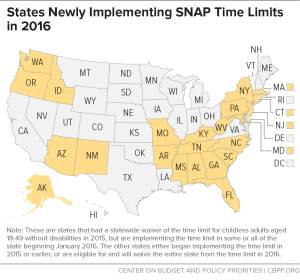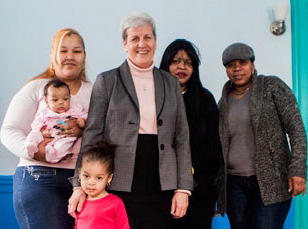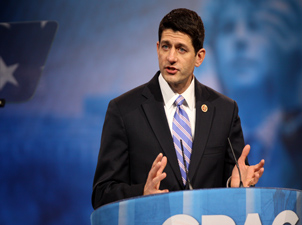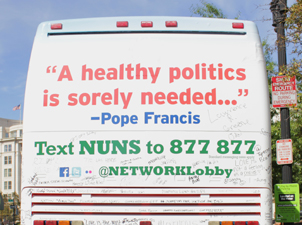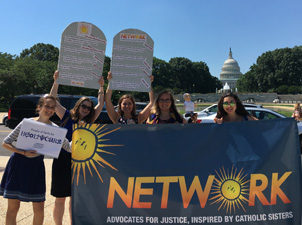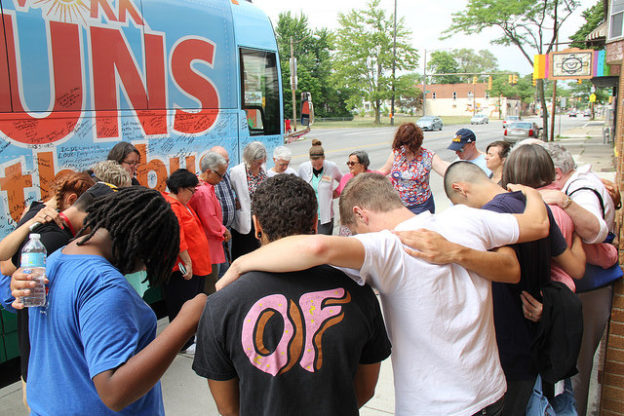
Living Laudato Si’
By Colleen Ross
July 07, 2015
Recently, NETWORK staff participated in a day away from the office living out Laudato Si’. We began the day at Three Part Harmony Farm – an urban farm in Washington, about two miles away from the office. At Three Part Harmony Farm we met Gail Taylor, the farm’s founder. Four years ago, the two acres that Three Part Harmony Farm now occupies was just empty land with grass growing. Working with the Oblate priests who owned the land, Gail began farming on the land, while also working to change D.C. tax codes that kept her from selling the farm’s produce in order for the land to remain tax exempt. Her efforts resulted in the D.C. Council passing the Urban Farming and Food Security Act in December 2014, which protects the tax-exempt status of land used for urban farms and community gardens as well as identifying new lots for urban farming, and other incentives for farming on land within D.C.
At Three Part Harmony Farm, we harvested peas, pulled turnips, planted cucumbers, and cut raspberry leaves for tea and other uses. With different tasks to work on, everyone learned something new and experienced a different part of farming. LaTreviette Matthews said “I had a great time on the farm. I learned so much about the process of starting and maintaining a farm. I have a greater appreciation for what farmers do.” Nick Moffa connected farming to federal policy: “My experience at the farm was a fantastic opportunity to see the work I do in the office come alive, especially protecting nutrition programs.” Allison Walters reflected later saying: “I thought the farm was an incredible example of what it means to live a life that is aware. Each choice made by the farmer was carefully considered for its impact on the community, the local economy, and the earth. What a great example of living Laudato Si’.” Even more important than learning to plant or harvest, at Three Part Harmony Farm we learned what a mindful, local movement towards a healthy relationship with the earth looks like.
After our close encounter with nature at Three Part Harmony Farm, we moved to Rock Creek Park, a National Park in the middle of the city, to continue our day. After sharing a potluck lunch, we explored the interconnection and intersection of caring for creation and caring for those who are vulnerable and marginalized. Reading excerpts from Laudato Si’ and news stories about the effects of climate change, unjust food distribution, and the exploitation of creation, we discussed the harm that has been done to our planet and our communities and found hope in Pope Francis’s call for a new way of valuing and living in our common home. We ended our day feeling hot and tired, but renewed with a deeper appreciation of our relationships to the earth and to each other.







